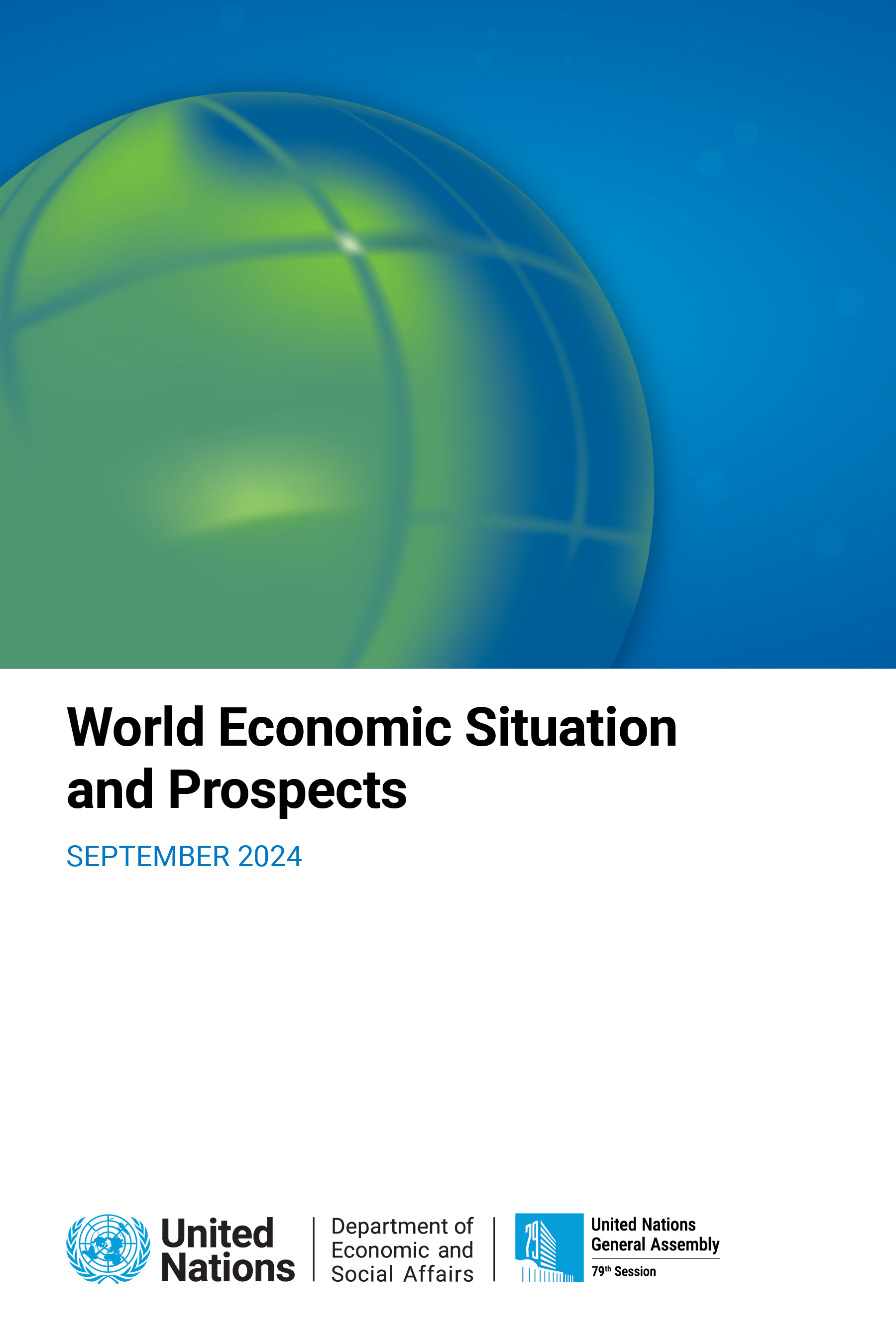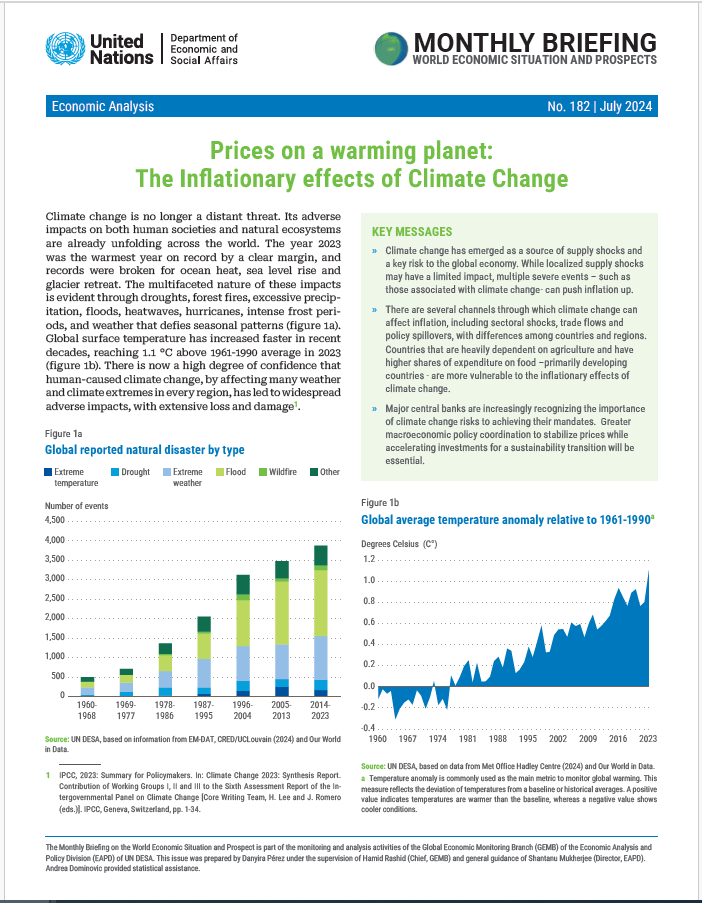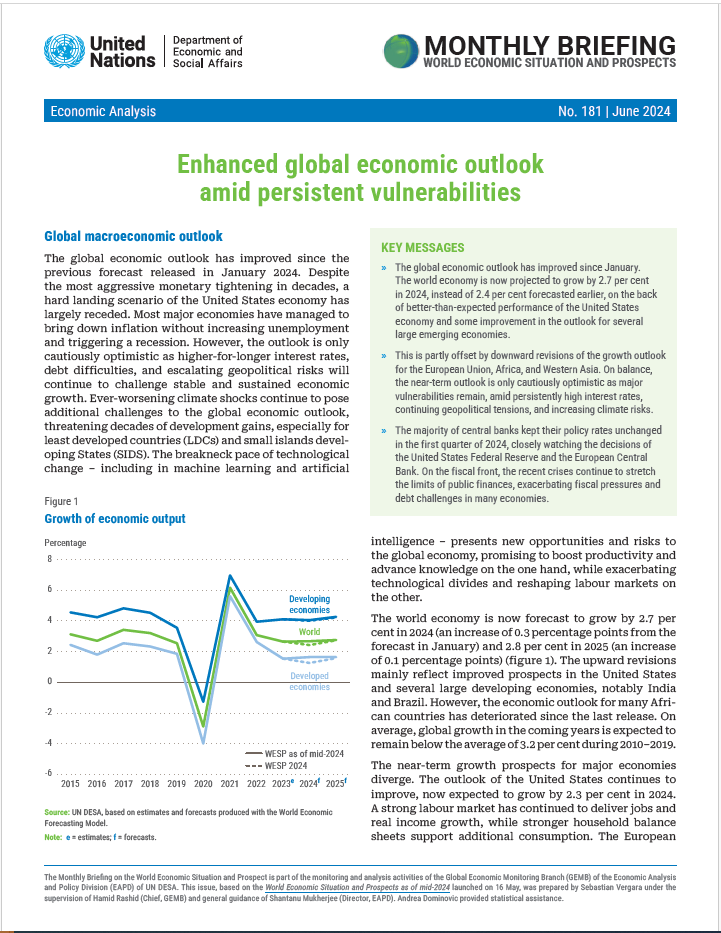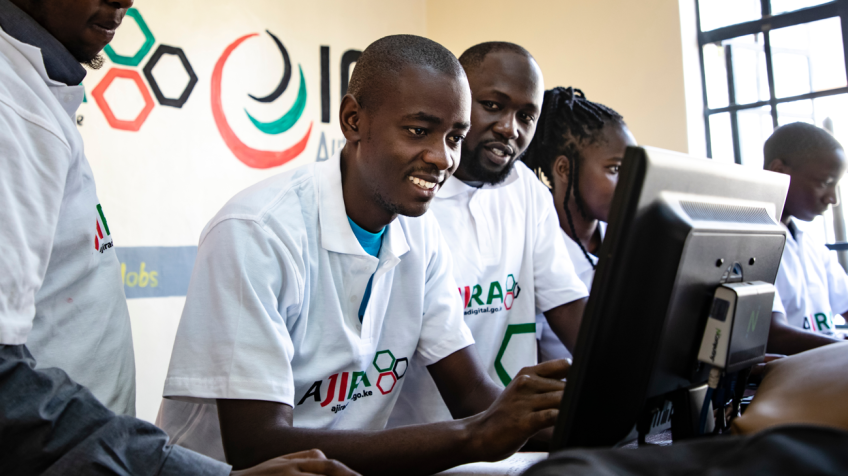Document_GEM: Global Economic Monitoring Unit (GEM)
Global Economic Monitoring Unit (GEM)
3 September 2024
After years of turbulence and significant volatility in economic output, the world economy is on a more stable trajectory.
7 August 2024
About 20 years ago, eight Eastern European countries joined the European Union. EU membership facilitated economic growth, transfer of new technology and knowledge to these countries, leading to the modernization and diversification of their production and export base.
2 July 2024
Climate change has emerged as a source of supply shocks and a key risk to the global economy. While localized supply shocks may have a limited impact, multiple severe events – such as those associated with climate change- can push inflation up.
3 June 2024
The majority of central banks kept their policy rates unchanged in the first quarter of 2024, closely watching the decisions of the United States Federal Reserve and the European Central Bank.
16 May 2024
The Economic Analysis and Policy Division in the Department of Economic and Social Affairs (DESA) will host the Expert Group Meeting “Harnessing the potential of critical minerals for sustainable development” on 29-30 May 2024. The participants will in ...
16 May 2024
The global economic outlook has improved since January, with major economies avoiding a severe downturn. The world economy is now projected to grow, on the back of better-than-expected performance of the United States economy and some improvement in the outlook for several large emerging economies.
1 April 2024
Given the strong interactions between domestic debt and the broader economy, policymakers must carefully weigh its associated trade-offs while determining the optimal debt structure to minimize chances of domestic debt default.
29 February 2024
Regional integration in West African economies faces further challenges as Burkina Faso, Mali, and Niger announced the intention to withdraw from the Economic Community of West African States (ECOWAS).
1 February 2024
A prolonged period of high borrowing costs and tight credit conditions could exacerbate balance-of-payment pressures and debt sustainability concerns in many low-income and vulnerable economies.

















Follow Us